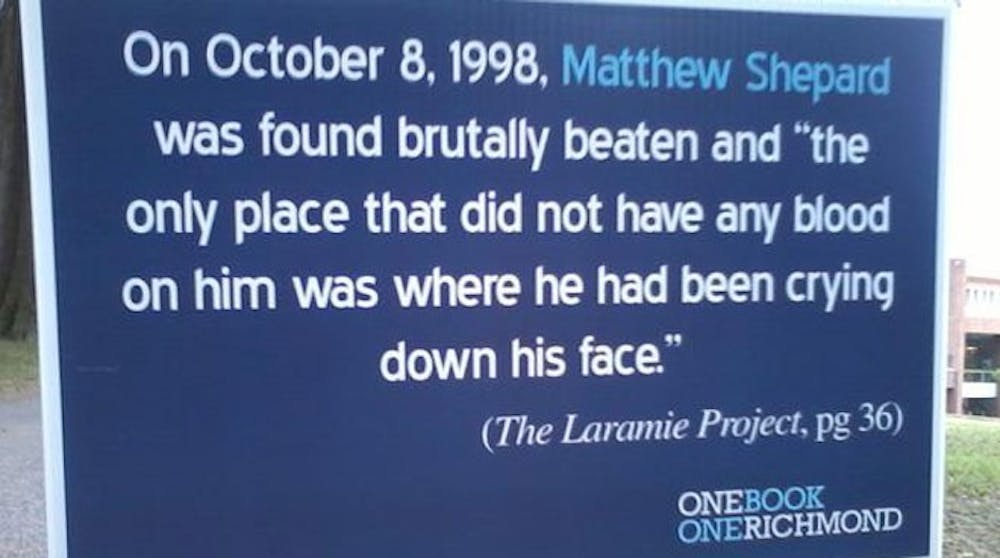Could it happen today? A young man is deceived, beaten within inches of his life with a gun and left for dead, tied to a fence post in the middle of nowhere. He stays there for 18 hours before being found, barely recognizable with a bashed-in skull and blood covering his entire face.
He was a college student only one year older than me, with interests in political science, languages and especially theater. In short, he was a normal guy. He also happened to be gay.
What exactly happened in the early twilight hours of Oct. 7, 1998, is only known by two people, both of whom are serving life sentences in prison. But two trials, a swarm of media coverage and 15 years of reflection have given America some insight into the murder of Matthew Shepard, and a painful legacy to live with.
Hate crimes has been a topic often mentioned in the news this year, with the murders of Trayvon Martin and Jeffrey Babbitt. Martin, a 17-year-old teenager in Sanford, Fla., was alleged to have been killed by a neighborhood watch coordinator, George Zimmerman, because Martin was black and walking at night on Feb. 26, 2012.
Although Zimmerman had admitted to killing Martin, he was found to have been legally defending himself in a heavily covered and controversial trial this past summer. The court case may be over, but the debate is not, with many people in America still considering Martin's murder a hate crime.
Jeffrey Babbitt, a retired subway conductor, was violently attacked in New York City's Union Square Park last month while walking to a comic book store he frequented. This assault was committed in broad daylight by a mentally ill homeless man who had declared he would "punch the next white person he saw," according to coverage in The New York Times.
Babbitt's head struck the pavement, causing him to fall into a coma and die. The unassuming comic book fan, 62, was the sole caregiver for his 94-year-old mother, who has Alzheimer's disease.
Hate crimes continue to happen too frequently in the United States, but the painful memory of Matthew Shepard's tragic death has helped spur action. After years of effort that started soon after Shepard's murder, a federal hate crimes law was passed in 2009.
The Matthew Shepard and James Byrd Jr. Hate Crimes Prevention Act gives the federal government funding and power to investigate hate crimes that have too often been ignored by local and state governments. James Byrd Jr. was a black man killed in Jasper, Texas, in 1998 by white supremacists who tied him to a pickup truck and dragged him for three miles on asphalt roads.
Although I am not the biggest fan of infringing on the principles of federalism even more, the proven record of inaction, and sometimes unwillingness, from local authorities on the issue of hate crimes sadly make this necessary. Neither Texas nor Wyoming had laws against hate crimes in 1998.
To conclude this sad essay, I will extend an invitation: Next Tuesday, Oct. 1, Matthew Shepard's mother will come to campus to speak about her son and his death. Hopefully none of us will have to experience hate crimes as personally as Judy Shepard has, but she will help us not forget how tragic it is.
Contact reporter Ben Panko at ben.panko@richmond.edu
Enjoy what you're reading?
Signup for our newsletter
Support independent student media
You can make a tax-deductible donation by clicking the button below, which takes you to our secure PayPal account. The page is set up to receive contributions in whatever amount you designate. We look forward to using the money we raise to further our mission of providing honest and accurate information to students, faculty, staff, alumni and others in the general public.
Donate Now


